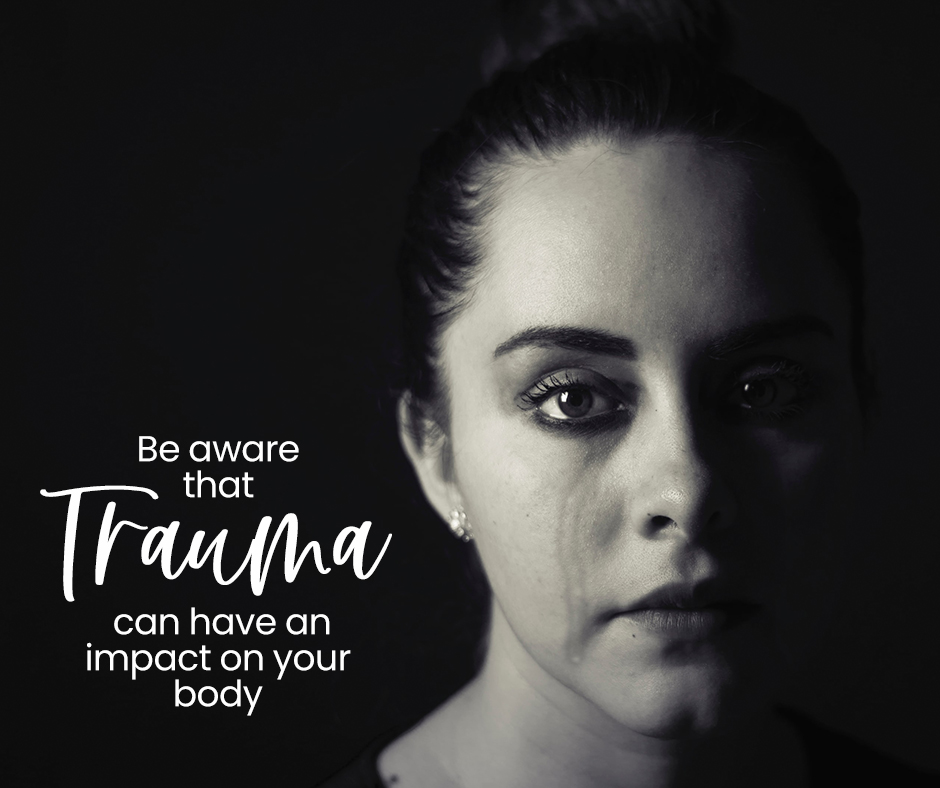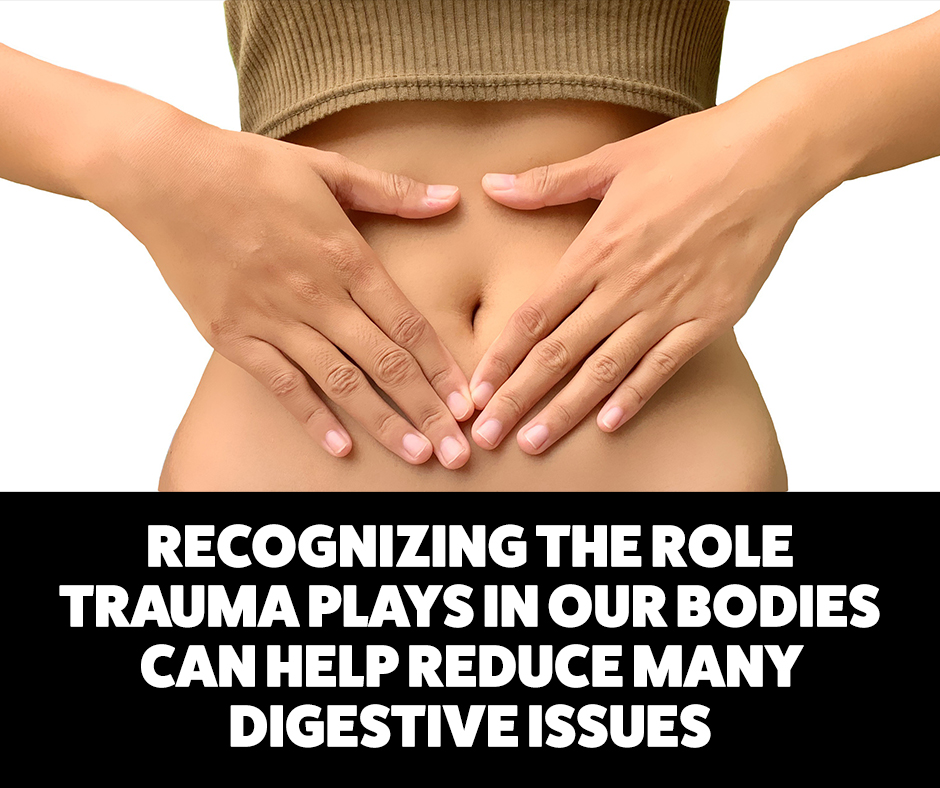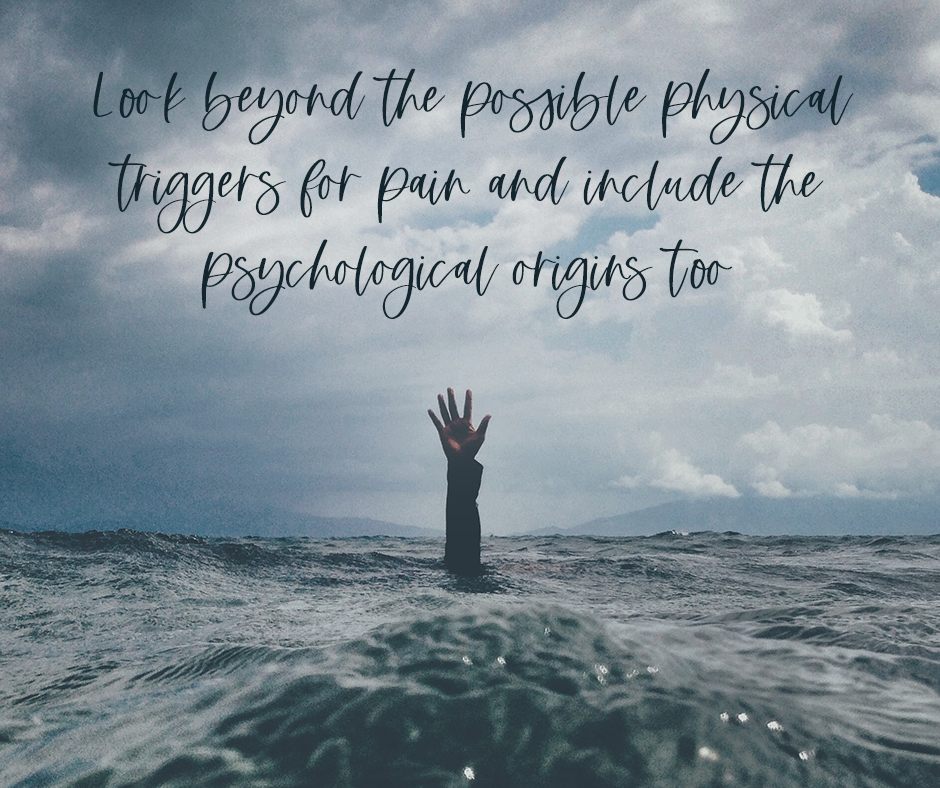 Trauma and Health are VERY Connected
Trauma and Health are VERY Connected
Trauma is the emotional response resulting from incomprehensible experiences. Suffering an attack, surviving an accident, or experiencing a natural disaster isn’t something everyone goes through. It’s not normal or natural to face these types of experiences. When we do, our brains and bodies remain impacted. What we see, feel, and experience has a direct impact on our minds and our bodies which means trauma and health are very connected.
Three Types of Trauma
Trauma isn’t limited to a one-off event or accident. There are three main types of trauma.
- Acute
- Chronic
- Complex
Acute trauma: This type of trauma comes from a single incident that is often out of the blue and not typical for the environment. It can include witnessing a trauma, experiencing a trauma, or surviving an accident or illness.
Chronic trauma: This type of trauma is repeated over time and includes issues like domestic violence, homelessness, and other prolonged exposure to dysfunction.
Complex trauma: This represents someone exposed to a variety of traumas including multiple traumatic experiences as well as prolonged traumas combined.
The Body Keeps the Score
Author Bessel Van Der Kolk, MD published the popular book The Body Keeps the Score illustrating how trauma impacts the body and causes a wide variety of mental and physical problems.
Our bodies are designed to withstand trauma. Our brains are especially hardwired to kick into gear when we face a traumatic experience. Our brains secrete hormones and send signals to our nervous system that help us act in the face of a threat and keep ourselves safe, but the experiences imprint on our mind too and can cause immediate and long-term issues, including-
- Post-Traumatic Stress Disorder
- Anxiety and other mental health disorders
- Digestive issues and autoimmune diseases
- Increased risk for stroke or heart attack
You May Not Be Aware of the Impact Trauma Has on Your Body
Sometimes a traumatic situation will immediately trigger a response in your body. Witnessing a tragedy or experiencing something traumatic can cause upset stomach, headache, or any number of other symptoms. Other times, your body may protect itself in the moment and seem to disregard what’s happened only to react later on when you may not make the connection. Either way, your body is keenly aware of what’s going on and has a conscious or subconscious reaction.
People living with chronic or complex trauma may have normalized the sensations in their bodies and have no awareness of the connection between their illnesses, diseases, or poor health and trauma.
It’s Time to Connect the Dots
If you haven’t given much thought to your health and how it may be impacted by trauma, it’s time to connect the dots. Taking a look at your personal history and comparing it with your medical history can be eye-opening. Once you recognize a potential connection between your health and any traumas you may have experienced (or are experiencing) you can begin to take a holistic approach to heal.
 Your Digestive Issues May be Linked to Trauma
Your Digestive Issues May be Linked to Trauma
Have you ever been scared, worried, or looking back on something in the past and started to feel queasy or worse, have to head for the bathroom? It’s amazing how our bodies can be triggered by our thoughts isn’t it? Research shows that four out of ten people suffer from some sort of gastrointestinal issues including everything from lactose intolerance to IBS.
Your Digestive Issues May be Caused by What You’re Eating
Everyone experiences digestive issues from time to time. Eating the wrong thing can cause momentary distress and for some, allergies can cause chronic illnesses that must be managed for a lifetime. Some of the common digestive disorders include
- Gastroesophageal reflux or GERD
- Chronic Diarrhea
- Chronic Constipation
- Gastroenteritis
- Ulcers
Over 73,000 people seek attention from their physicians every year to manage these and other digestive issues. For many, changing their diet can reduce or eliminate the symptoms or presence of certain diseases, but what happens when diet changes don’t help?
Your Digestive Issues May NOT be Caused by What You’re Eating
People who have suffered, or are living with trauma, often experience the same digestive issues, but their diet isn’t the culprit. That’s because some physical issues aren’t the result of a medical condition. They may be caused by tension in the body. Most often, the gut.
Our gut and our brain are connected. The gut includes the mouth, esophagus, stomach and intestines. When we are nervous, upset, or experiencing stress, our digestive system is often triggered by the brain and begins to experience dis-ease. This can be as mild as feeling sick to our stomach or as intense as cramping. Over time, it can also lead to a host of digestive illnesses.
You Can Help Tame Your Irritable Digestive System
If you have no medical reason for digestive issues it may mean your body is reacting to trauma. The good news is there are many things you can do within your control that tame your digestive system. Try these out-
Use Your Breath: Breathing is a powerful way to regulate your mind and body. You can help relax your mind and nervous system and allow your body to settle through deep breathing. You can accomplish this by taking a walk, lying down and meditating, or closing your eyes for a few minutes.
Change the Scenery: One of the easiest ways to disrupt nervousness is to change the scenery. If you are inside, get outside. If you are in the car, stop and take a brisk walk. Breaking up the scenery can help distract the mind and the body’s reaction to traumatic thoughts.
Choose Foods Wisely: Even if there is no medical explanation for your digestive issues, what you eat still matters. Choosing healthy foods that promote gut health is an extra layer of protection against pain and upset. Eat a fiber-rich diet with plenty of hydrating fruits and vegetables for a stable gut.
Digestion issues are incredibly common and it’s possible you are suffering because of what you eat, or it could be what’s eating you. Recognizing the role trauma plays in our bodies can help reduce many digestive issues you may have thought were medical.
 Chronic Pain May Have a Psychological Origin
Chronic Pain May Have a Psychological Origin
Traumatic experiences leave their mark on the mind and the body. Experiencing trauma, whether it’s one time, or repeatedly, changes how the brain reacts to stress. Our bodies produce hormones that help deal with temporary stress. Over-production of these hormones can keep the body in a state of hypervigilance that results in aches and pains throughout the body. Some, but not all pain could include-
- Muscle pain
- Digestive pain
- Chronic headaches
- PMS in women
- Joint pain
Studies linking chronic pain and trauma indicate that it’s possible that our bodies can react to single and repeated incidents of trauma long after the acuity or safety issues are gone. That means your current aches and pains may be rooted in past trauma.
Childhood Trauma and Chronic Pain
The ACE, or Adverse Childhood Experiences, study was a partnership between the Centers for Disease Control and Keiser Permanente hospital to determine whether abuse, neglect, and loss during childhood could indicate risk factors for mental and physical illness in adulthood. The study identified categories of abuse, neglect, and loss and determined that the higher the number of traumatic experiences, the higher the likelihood of illness down the line. Data revealed an alarmingly high correlation between childhood trauma and a host of diseases, addictions, and illnesses including chronic pain.
Post-Traumatic Stress Disorder and Chronic Pain
Many people think of veterans when they hear the term post-traumatic stress disorder, also known as PTSD, but military personnel is not the only ones who experience this disorder. PTSD occurs in people who have difficulty recovering from a traumatic, terrifying, or life-threatening event. PTSD affects all races, genders, and age groups. PTSD can lead to chronic issues including nightmares, intrusive thoughts or memories, isolating behaviors, depression, and much more. Chronic pain is often associated with PTSD resulting from tension, overproduction of stress hormones, and other factors.
Your Pain May be Originating in Your Head
Over 50 million people per year live with chronic pain. Most of them seek relief from their medical provider who is focused on their bodies. As a matter of fact, being told pain is all in your head is considered an insult, but it’s possibly true. More and more physicians are looking beyond the possible physical triggers for pain and including the psychological origins too. If you have experienced trauma, even if it was long ago, you may be reacting physically to something psychological.






Leave a Reply